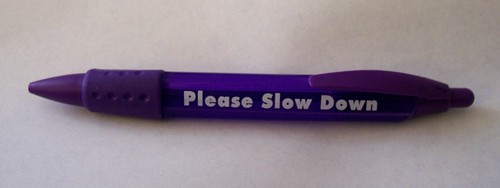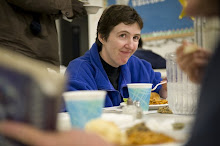I wrote this paper two weeks ago, the day before I went to New Orleans. I'm still processing that trip, and thinking about the question of how to live responsibly in this world as I experience it. I see the world differently, since returning from there. But these questions are still relevant, and so I share them with you.
Creation is fallen, asserts William Stringfellow, all of it; the humans, the animals, everything. Further, America is the Babylon of the Book of Revelation. Identity with the biblical Jerusalem is completely beyond us. There is no hope for our warlike, greed-driven society and culture. So, whatever shall we do?
Stringfellow opens An Ethic for Christians and Other Aliens in a Strange Land with the whole of Psalm 37. This is the famous lament of the exile in Babylon, which begins in remembrance and weeping, and ends with the image of dashing a Babylonian child’s head against a rock. In his preface, he asserts the error in conceiving of the US as Zion, and a similar error in reading the Bible as if it were an apolitical document (14). He invokes the authority of Revelation (16), of which he will extensively use the Babylon passages later. He recalls the principalities and powers, discussed in depth in Free in Obedience, and states his intention to inform Americans about the reality of the Fall (19).
Why is Babylon relevant? Because it is cursed; the once-great city crashes down. “The violent disintegration of this most rich and most powerful of all nations: Babylon—should incite jubilation in heaven.” (25) This most powerful nation is our own, and we have failed to comprehend its future; we are demoralized, impoverished, incapacitated (27). Where we need moral wisdom, it is absent (28). Our hearts are hardened; we cannot see or hear outside of ourselves (29). We are morally asleep (31). Babylon is the city of death; Jerusalem is the city of life. We are awash in what makes a Babylon: “alienation, babel, slavery, war.” (34) We know what peace is; Stringfellow’s implication is that we never choose it. He writes this book “for the exorcism of that vain spirit.” (34)
How that exorcism will happen is a little bit vague. The biblical topic is politics (42), being, as it is, a story of God’s relationship to God’s people. You can’t have community without politics; you can’t have God without community. (56) But “the ethics of biblical politics offer no basis for divining specific… solutions for any social issue.” (54) The Bible won’t tell you the will of God for any situation particular to your experience. There are no simple answers. You have to ask a broader question: “How to live humanly during the Fall?” (55)
For we live both in earthly and spiritual contexts; both in Berkeley and in Babylon. Stringfellow continues, “A Christian lives politically within time, on the scene of the Fall, as an alien in Babylon, in the midst of apocalyptic reality.” We are members of “Christ’s church, [citizens] of Jerusalem, the holy nation which is already and which is vouchsafed, during the eschatological event.” (63) We are not here only on behalf of ourselves; we are here as emissaries of God. We have to practice “saying no and yes simultaneously;” denying sovereignty to the power of death, affirming “the authority of life.” (63) The “no” we say to death is simultaneously a celebration of life. (64)
What is this “death” he speaks of? Death is far more than physical demise; it is a moral power, a “social purpose.” (70) Stringfellow, writing in 1973, uses the Vietnam War as his example. Here we have racism, in counting the deaths of Asians less important than those of Americans (71); tactical strategies equating high body counts with victory, and euphemizing “massacre” into “search and destroy”, and genocide as a matter of principle (72). “Smart bombs” meant that soldiers didn’t see their victims dying. Napalm meant poisoning the earth, so people couldn’t hide.
But before Vietnam, there was Hiroshima. Stringfellow asserts that before that August 6, “that war… strategically and technically already had been won.” Therefore, the nation bombed two Japanese cities, just because it could. (75) The spirit of death was victorious there, as it had been before, and continued to be. The existence of war is a sign of the Fall. The difficulty we have in acknowledging that, is even more so.
The principalities and powers, created by God, are also fallen. Stringfellow offers a rare taste of wry humor, here, when identifying other creatures identified with them: “the bear is Russia, the tiger represents Princeton, the donkey the Democratic Party, the pig the police.” (78) Legion, they are, and though created for humankind, they have come to dominate us. None are benign. Even those which can serve well may be aggressive, if you are an African-American male on the wrong side of the legal system. We serve them both in power and in ignorance, and all of us are victims (77-94 passim). Their favorite trick is deception (98-101). The Antichrist, that which is against both God and human life, is in our midst (111).
We appear to be inescapably, thoroughly besieged by demonic powers. What can we do about it? Stringfellow sticks a toe in the waters of hope, by setting this question against the backdrop of the resistance against the Nazis in World War II. Our choice, he says, is to risk the equivalent of capture, imprisonment, torture, and death. The act of resistance to evil is the only way to the preservation of sanity or conscience (118). Not to risk everything, by implication, is to give in to the power of death.
Here, the Bible re-enters the discussion; apparently, a large contingent of the Resistance had been comprised of evangelical Christians. Scripture study had been practiced widely not only by them, but by Jewish participants also. Reading the Bible had been, in itself, “a primary, practical, and essential tactic of resistance.” (120) They read these scriptures together, they talked and thought about them, and the stories became a part of their story as well.
But, alas, not the American churches (121). We have not resisted demonic power; we have enthusiastically participated in it. We are degraded; we were founded by pagans, and we don’t respect our scripture. Our hope, should we have any, can be found in the confessing churches. It is they who appreciate the gifts they have; they, who are “spontaneous, episodic, radically ecumenical, irregular in polity, zealous in living, extemporaneous in action, new and renewed, conscientious, meek, poor,” who can truly live the Gospel (122).
Presumably it is they who best use their spiritual gifts; the character of those gifts would seem to lend itself to Stringfellow’s description of the confessing church. Here, finally, are the tools to resist the power of death. He begins this chapter with a discussion of discernment, of the importance of noticing and appreciating “the remarkable in common happenings,” (138) the power that is given us to speak prophetically and to know the Word of God. Glossolalia is more than what we call “speaking in tongues.” It is ecstatic, spontaneous, truthful, joyful speech. Here is how to construct integrity in worship; this is the gift to use when we are called to rebuke demonic powers. This “liberated witness” is for Stringfellow “the sound of revolution.” (148) The gift of healing is treated with descriptions of the raising of Lazarus. We are called to heal, and thus to witness to the power of Christ to overcome death (148-49). Exorcism has nothing to do with horror movies, and everything to do with burning draft cards, with “exposing the death idolatry of a nation.” (150)
For we live, as Americans, in Babylon. Is there hope for America? No. Is there hope in Christ? Always; in fact, Christ is our only hope. A “no” to America, Stringfellow contends, is a yes to God, and to life (155).
This book appeals to the cynic in me, as it leaves the hopeful idealist searching. I am always one who wants action alerts, postcards to sign, rallies to attend. I didn’t find them here. While I appreciate and agree with Stringfellow’s position on American depravity, I get a little too tired of my own cynicism to comfortably say so. I didn’t feel picked on, for my nationality; I felt frustrated by the depth of greed in our culture. I also wonder, though, if that’s a fact of humanity, and that our particular sin is that we flaunt our consumerism, greed, and militarism without thinking about it. I am flying to New Orleans tomorrow. People have raised money for the four of us to go; a week in the Big Easy is not going to end up costing me very much, materially. I am also very aware that I am going to a city famous for its culture, to work in a disaster zone. I have never been homeless. I have never lost all of my possessions, and the people I most loved, let alone in a single water-logged day. I have never had to take refuge in a crowded, filthy sports stadium. I have not been forgotten by the governmental agencies and insurance companies whose charge it is to protect me. I’ll be there for a week, helping out at a women’s shelter, listening to people’s stories, doing my best to stay clear enough to bring a piece of the presence of God. I’ll fly back here eight days later, to my comfortable grad-student life, where my biggest worry of the moment is one late paper.
This book gave me something to think about, vis-a-vis living humanly, being a truthful, healing presence, in a disaster zone. As a white, middle-class American graduate student, I can’t. As a Christian, maybe I can.





